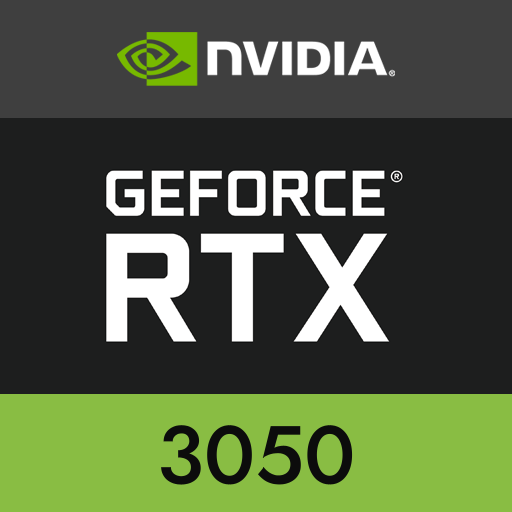NVIDIA GeForce RTX 3050
The GeForce RTX 3050 is an NVIDIA GPU that was released in 2022 January. This GPU is good at gaming with a score of 3468 points in our PC benchmark.
The GeForce RTX 3050 has 8 GiB of GDDR6 memory, with a total memory bandwidth of 218 GB/s. The memory bus has a width of 128 bits. More memory is beneficial when gaming at high resolutions as the memory needs to store the frame buffer and all the game textures. If you run out of memory, you will experience poor performance as the GPU needs to swap data in and out of the memory as it is used.
In terms of clock speed, the GeForce RTX 3050 GPU core runs at a frequency of 1552 MHz and if power and temperature permits, it can boost up to 1777 MHz. The core clock is directly related to the performance of a GPU, the higher the clock, the more processing can be done per second. A higher clock does not guarantee better performance by itself, this also depends on the number of shading units and other elements of the pipeline.
As for rendering API support, the GeForce RTX 3050 supports up to DirectX 12. In addition, in cross-platform titles, OpenGL 4.6 features are supported. Higher level APIs such as DirectX 12 give more control to the game developer and can allow them to improve the graphics and performance.
Power and thermals for the NVIDIA GeForce RTX 3050 are a TDP (Thermal Design Power) of 130 watts. This measures the amount of heat the GPU produces when running at 100%. This isn't a measure of power consumption, but it's a good estimate.
To figure out your graphics card specs and performance, download our free GPU Benchmark utility.



























No comments yet! Be the first to leave a comment using the form below.